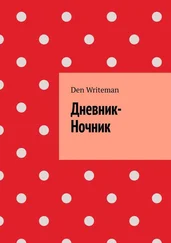1 ...7 8 9 11 12 13 ...31 On that black day the clang of the ambulance bell opened practically every front door in Leslie Street, not out of idle curiosity but because the residents were bonded together by a genuine concern and sympathy for the grieving household. Inside 36 Leslie Street, as we waited apprehensively while a burly ambulance man was upstairs preparing Vernon for his admittance, something extraordinary happened: a little black bird flew in through the open front door into the kitchen, turned and flew out again. My stomach was gripped by a cold foreboding. It was a bad omen. A few moments later, the ambulance man made his way carefully downstairs, carrying Vernon, wrapped in a blanket, his face white and bloodless, and his eyes closed as his head lolled against the ambulance man’s chest. I was convinced that I’d never see Vernon again, but, God be praised, as usual I was being over-dramatic. After some weeks, or it may have been longer, Vernon was cured and discharged from hospital. Dad walked him home and what a joy it was when he arrived! Mother, John and I shared a huge smile of welcome. In those long-forgotten days in the north-west we were certainly not demonstrative, but our faces said it all. We were a whole family again. It had been a harrowing time—first John smitten by scarlet fever, and then Vernon struck down with diphtheria—and the most I could contribute was a runny nose.
Oddly enough for a delicate child, I never saw the inside of a hospital, not even to visit John and Vernon; but I hadn’t escaped completely unscathed. I was laid low for a few days with mandatory mumps, and I must say I quite enjoyed the experience, propped up in the bed with hot milk; and, best of all, Grandma Sykes brought me a comic to read every day, wiped my face with a warm flannel and combed my hair. I’d never had such personal care and attention in my life.
On the day of the doctor’s visit, Grandma Sykes was like a nervous chicken awaiting a fox, plumping up the pillows, giving my face an extra shine, stuffing the comic in a drawer, even running a damp cloth over knobs on the bed rail until there was a rat-a-tattat on the front door. Grandma smoothed her apron and gave me a warning look as if to say, ‘Don’t go away.’
Dr Law was respected by the whole community, where it was generally accepted that he was a fine man. I’d seen him in his surgery a few times—once just to pick up a prescription for cough mixture, and on another occasion when John had pink eye and I went with him—and on each occasion Dr Law was seated behind his desk, which we had to go round so that he could examine little patients without having to bend down. On the two days when he had called at our house about the scarlet fever and diphtheria I hadn’t been at home, and I’d never actually seen him standing up, so when he had to duck his head to enter the bedroom where I was prostrate with mumps I got quite a shock. He was immense, well over six feet tall; his brown hair had an off-centre parting, and he exuded good health and breeding in stark contrast to the pinched white faces of undernourished Lancashire.
As he approached the bed, he spoke in a deep, melodious Irish brogue. ‘And how are you this morning, young man?’
Grandma, following him in, brought up a chair.
‘Thank you,’ he said in a dark velvet voice that made her blush, and he sat down to put his stethoscope on my chest. ‘’Tis a fine morning,’ he said as he listened to my heartbeat.
I nodded, as it was still uncomfortable to speak.
He stood up and, placing his stethoscope in his bag, he said, ‘You’ll do.’ Then he nodded and Grandma saw him out.
When they’d left the room, I slipped out of bed and wobbled over to the window. As Dr Law climbed into his trap, he said a last few words to Grandma, raised his trilby to her, and then slapped his reins on the pony’s rump and clip-clopped to his next patient. Oh, if only I could grow up to be half as good a man as Dr Law.
There was only one drawback to the billeting arrangements. At five thirty every weekday morning, the knocker-up came, a man shouldering a long pole with wire prongs on the end of it with which he tapped on the front bedroom window like brushes on a snare drum to let my father know that it was time to rise and shine. However, Granddad was in the front bedroom now, and so he had to scramble out of bed in his shirt, tippy-toe to the window, push it up and stick his head out to let the knocker-up know that they’d got the message; then, pulling the window down, he tiptoed on the cold oil cloth into our bedroom to wake up my father. This done, he’d tiptoe back to his own still-warm bed, because his place of work was closer and he didn’t have to get up until seven thirty—what luxury!
The services of the knocker-up cost my father a penny a week. Imagine: on those cold, dark, winter mornings, the unfortunate man would have to tap, tap on bedroom windows 240 times a week just to earn a pound, barely enough to keep him out of the workhouse. And by the way Granddad didn’t tiptoe in order to be quiet: if he’d put his feet flat down in winter they might have stuck to the below-zero linoleum.
Talking of shirts: they were the standard sleep attire for males; the ladies wore nighties. We all knew about pyjamas, of course—we’d learned about them from American films. We were aware that the well-to-do brushed their teeth, but a toothbrush had yet to make its appearance in our house or in any other domicile on our patch. Most of the grown-ups ate with false teeth, their smiles a bright uniform plastic. These dentures were heirlooms and, like spectacles, were handed down. Using these was better than having porridge at each meal.
Across the road from the top of Houghton Street where the Ashtons lived was the start of Oldham Edge, a large area of sparsely grassed ups and downs that could have originally been a breakaway from the Pennine chain. It was bisected from the Royton end to the heights of Oldham by a straight road in desperate need of repair possibly, in fact almost certainly, built by the ancient Romans. The whole hilly, hummocky area rose to magnificent views of commercial Oldham. A dozen or more black factory chimneys belched dark smoke straight up on a rare calm day but in a capricious wind all the smoke would suddenly veer at right angles to the chimneys and then move as one in another direction like synchronised smoking. On Sundays, however, there was no such entertainment as the cotton mills enjoyed a day of rest and it was on these days that the workers—the younger ones, that is—got together for their sport on Oldham Edge. In the summer there was cricket, but there were not many matches because of the weather and because flat bits of Oldham Edge were sparse. In the winter there were games of football requiring unknown talents when dribbling along the side of the hill, which had piles of clothing at either end for goalposts.
I once played footie one Sunday when the light wasn’t good and ominous dark clouds had been assembling since early morning until the whole of the sky was black. I can’t remember how the game was afoot when the heavy leather ball flew over my head and before I could pull myself together I was trampled under a stampede of players. There must have been forty or fifty a side on that pitch, and as they were mostly young men wearing ordinary working clothes it was difficult to know who was on the opposing team. How I got involved in the first place, wearing my only shirt and an old pair of off-white army underpants over my own short pants, I’ll never know. Then the ball went over my head again, this time in the opposite direction, and I was faced by a sweating mob chasing the ball. I didn’t hesitate: I joined them. I could have been trampled to death. Then, to make matters worse, the monsoon broke, as heavy a deluge as I’d ever seen. Immediately the pace of the game eased up. It had to, as within a few minutes large areas of Oldham Edge were waterlogged and to kick a ball when it was floating was against all the rules of the game. Everything spluttered to a halt when one of the young bucks picked up the ball and walked disconsolately homewards, and everyone slouched off. It was too late for running and we were all wet through.
Читать дальше












